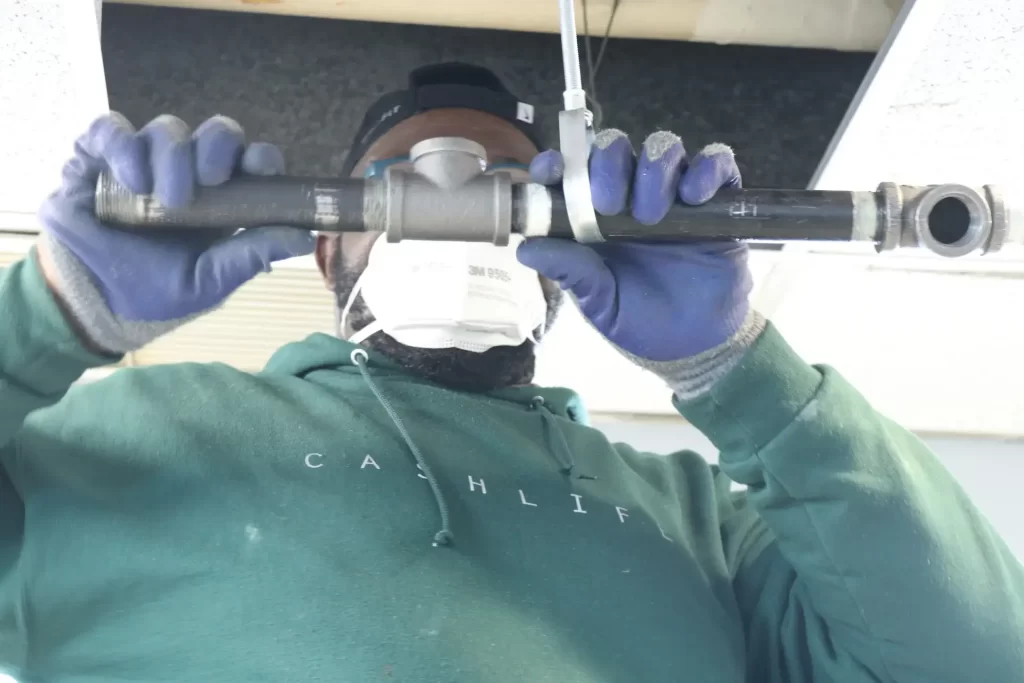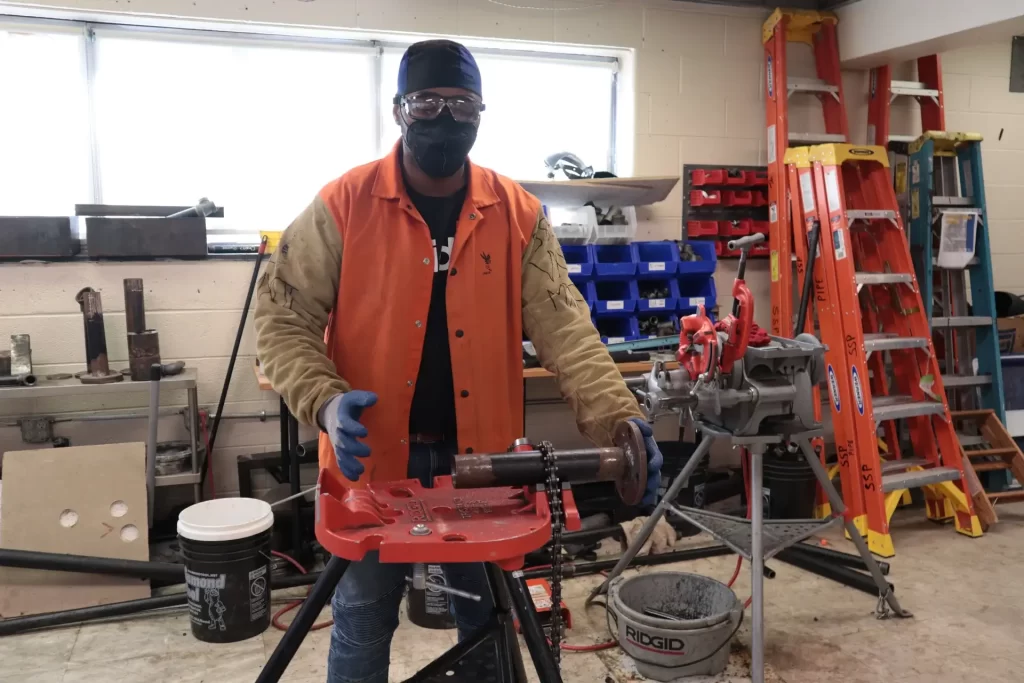The information and skills necessary to install, maintain, and repair piping systems used in a variety of industries, including construction, manufacturing, and energy, are often covered in a pipefitting training program. Therefore, by equipping people with crucial abilities and knowledge required for success in the field, pipefitting training programs can be crucial in developing a sustainable workforce.
Here are some of the topics that a pipefitting training program may cover:
This module covers the basics of pipefitting, including terminology, types of pipes and fittings, and safety practices.
In this module, students learn how to read and interpret blueprints, use measuring tools, and plan and layout piping systems.
The installation of pipeline systems is covered in this module, along with the installation of valves, fittings, and flanges. Cutting, threading, and bending pipes are also covered.
Students learn the basics of welding techniques used in pipefitting, including SMAW (shielded metal arc welding), GTAW (gas tungsten arc welding), etc.
The examination, upkeep, and repair of piping systems are all covered in this module, as well as the replacement of worn-out pipes, valves, and fittings.

Every pipefitting programme must incorporate safety procedures. Students gain knowledge of the risks involved with pipefitting work, including exposure to dangerous chemicals and high-pressure systems, as well as how to follow safety procedures to avoid mishaps.
Different codes and laws frequently apply to pipefitting-related work. Students learn about a number of norms and standards that are related to pipefitting work, including the International Plumbing Code (IPC), National Fire Protection Association (NFPA), and Occupational Safety and Health Administration (OSHA) laws.
In addition to technical skills, pipefitters need to have good communication skills, problem-solving abilities,
Here are some ways in which pipefitter training programs can help to build a sustainable workforce:
Individuals can learn the skills required to work as a pipefitter through pipe fitting training programs, including how to read blueprints, measure and cut pipes, and install pipes and fittings. Training programs can aid in developing an educated and qualified workforce because these abilities are crucial in the industry.
Pipefitters who have received the appropriate training provide high-quality work that complies with all rules and regulations. This guarantees the durability, dependability, and safety of pipes. A well-trained crew can also provide high-caliber work, lowering the possibility of errors or the requirement for repairs.
People can learn about safety regulations, practises, and best practises from pipefitter training. By encouraging workplace safety, training programmes can help to reduce the number of accidents and injuries at work. In a safer environment, employees can function effectively.
The importance of sustainable pipefitting methods is due to renewable energy. Workers that are trained in pipefitting methods can reduce waste and their environmental impact. This is essential if we want to develop a workforce that can serve future generations.

Semantic fitting training courses can improve employee productivity by demonstrating how to work precisely and accurately.
Workers participating in pipefitting training learn how to install, repair, and maintain pipes using the most recent tools and methods. This leads to quicker, more effective work, which increases productivity and decreases downtime. This is crucial in sectors like the oil and gas industry, where time is essential. Additionally, adequately trained pipe fitters have a lower likelihood of making errors or causing delays, which can accelerate project completion times and lower costs.
Pipe-fitting training programs can aid in ensuring that employees adhere to rules and industry standards. This can enhance productivity and lessen the possibility of legal problems for the employer.
Pipefitting training programs can also allow people to grow in their careers, which can support job satisfaction and retention. Additionally, by giving staff members the necessary training and education, they can take on more demanding jobs and responsibilities within the industry.
Organizations aiming to develop a long-lasting staff may find that investing in pipefitting training classes is a wise decision. Employers may contribute to the long-term success of their company and the wellbeing of their workforce by giving people the abilities, information, and chances for professional progression.
Read More: